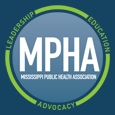Abstract
Background: Health inequities in the Gulf states are complex issues to resolve, and no single solution or strategy can improve the health rankings in each state. Yet, using grassroots approaches and building community partnerships are promising strategies to identify important health issues and opportunities for policy change. Purpose: This paper illustrates how the Gulf States Health Policy Center coalitions in four different locations used the same community-based participatory research model, but with distinct differences in processes, across nine projects to address issues that negatively affected population health. Methods: Recognizing that communities have unique needs, resources, and complementary health efforts, we illustrate how the community-based participatory research process is adaptable and can be applied across these different environments. Results: While numerous community-based participatory research tool kits and single case studies are available in the extant literature, this article highlights the various and effective ways that community-based participatory research can unfold through viewing these nine cases side by side. Conclusions: We conclude by highlighting the benefits of the adaptability of community-based participatory research methods and making recommendations for future efforts in community-based participatory research.
Recommended Citation
Bright, C. F.
(2023). Adaptability in Community-Based Participatory Research: Comparisons of Coalitions in the Deep South.
Journal of Public Health in the Deep South, 1(2), 10.
DOI: https://doi.org/10.55533/2996-6833.1056

